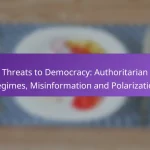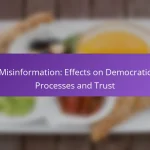Global crises, such as pandemics and conflicts, pose significant threats to civil rights and freedoms, often leading governments to adopt measures that may infringe on individual liberties. These actions can disproportionately impact vulnerable populations, highlighting the urgent need for effective responses that combine legal reforms, international pressure, and grassroots mobilization to safeguard freedoms. Organizations dedicated to civil rights advocacy play a crucial role in promoting social justice and holding governments accountable for violations.
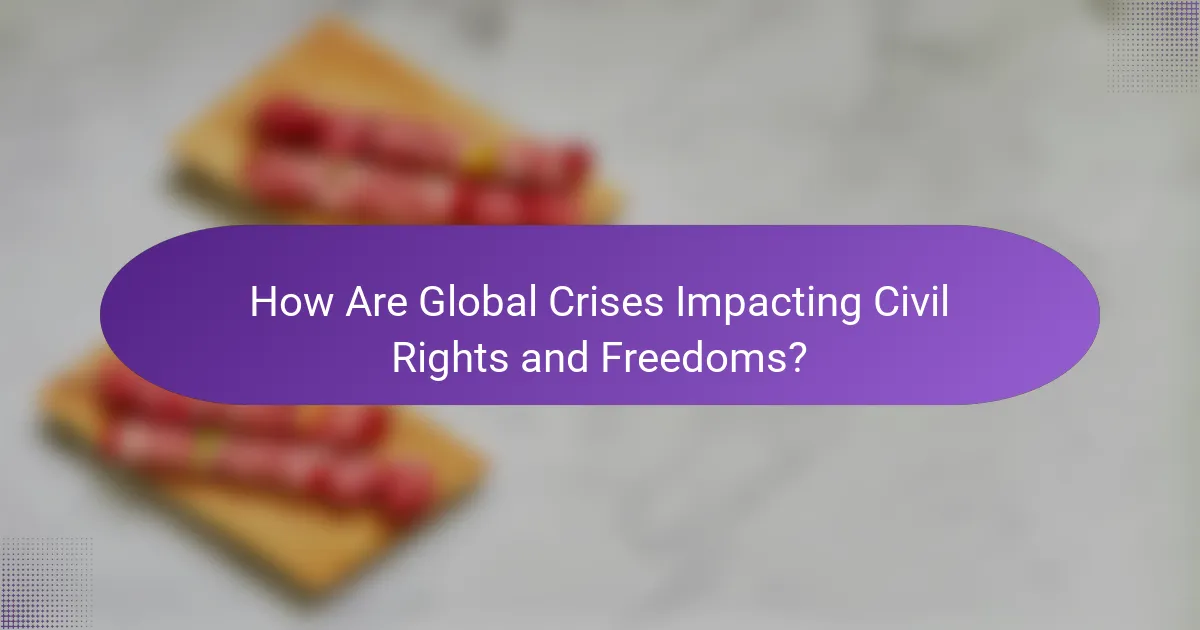
How Are Global Crises Impacting Civil Rights and Freedoms?
Global crises, such as pandemics and conflicts, often lead to significant challenges for civil rights and freedoms. Governments may implement measures that, while intended for public safety, can infringe on individual liberties and disproportionately affect vulnerable populations.
Increased government surveillance
During global crises, many governments enhance surveillance measures to monitor public health and safety. This can include tracking individuals’ movements through technology, which raises concerns about privacy and civil liberties.
For example, during the COVID-19 pandemic, various countries deployed contact tracing apps that collected personal data. While these measures aimed to control the virus’s spread, they often lacked transparency and raised alarms about potential misuse of data.
Restrictions on freedom of assembly
Global crises frequently result in restrictions on the right to assemble peacefully. Governments may impose bans on gatherings to prevent the spread of disease or maintain order, which can limit citizens’ ability to express dissent or advocate for their rights.
In many instances, these restrictions are enforced through fines or arrests, particularly in regions where protests are common. It is crucial for citizens to understand their rights and the legal frameworks governing assembly in their respective countries.
Discrimination against marginalized groups
Crises can exacerbate existing inequalities, leading to increased discrimination against marginalized groups. Vulnerable populations, including racial minorities and low-income individuals, often face heightened scrutiny and reduced access to resources during such times.
For instance, during economic downturns linked to global crises, marginalized communities may experience job losses at disproportionately higher rates, further entrenching systemic inequalities. Advocacy and support networks play a vital role in addressing these disparities and ensuring equitable treatment.
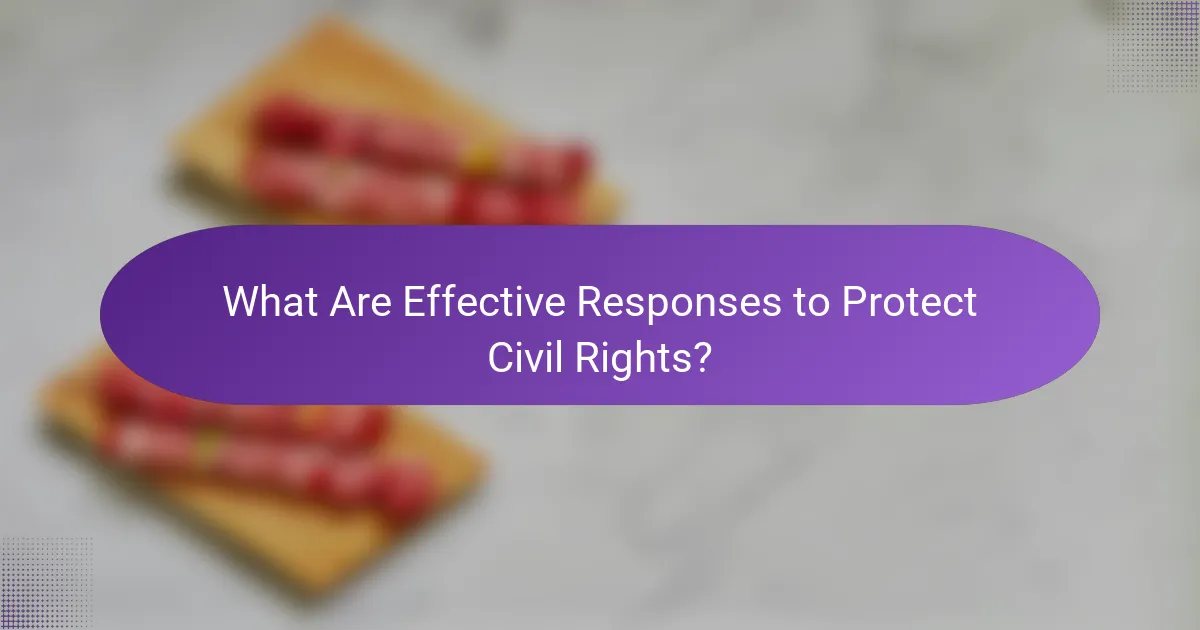
What Are Effective Responses to Protect Civil Rights?
Effective responses to protect civil rights involve a combination of legal reforms, international pressure, and grassroots mobilization. These strategies aim to create a robust framework for safeguarding freedoms and addressing violations.
Legal reforms and advocacy
Legal reforms are essential for establishing and enforcing civil rights protections. This may include updating existing laws to reflect contemporary values or introducing new legislation that addresses specific issues, such as discrimination or freedom of speech.
Advocacy plays a crucial role in pushing for these reforms. Organizations and individuals can engage in lobbying efforts, public campaigns, and legal challenges to influence policymakers and raise awareness about civil rights issues.
International pressure and sanctions
International pressure can significantly impact a country’s adherence to civil rights standards. This may involve diplomatic efforts, such as public statements from foreign governments or international organizations, urging compliance with human rights norms.
Sanctions can also serve as a tool to compel governments to respect civil rights. Economic sanctions or travel bans may be imposed on officials responsible for human rights abuses, creating a tangible consequence for violations.
Grassroots mobilization and awareness campaigns
Grassroots mobilization is vital for fostering community engagement and activism around civil rights issues. Local organizations can organize events, protests, and educational programs to inform citizens about their rights and encourage participation in advocacy efforts.
Awareness campaigns can amplify the message and reach a broader audience. Utilizing social media, traditional media, and community outreach can help highlight civil rights challenges and mobilize support for necessary changes.
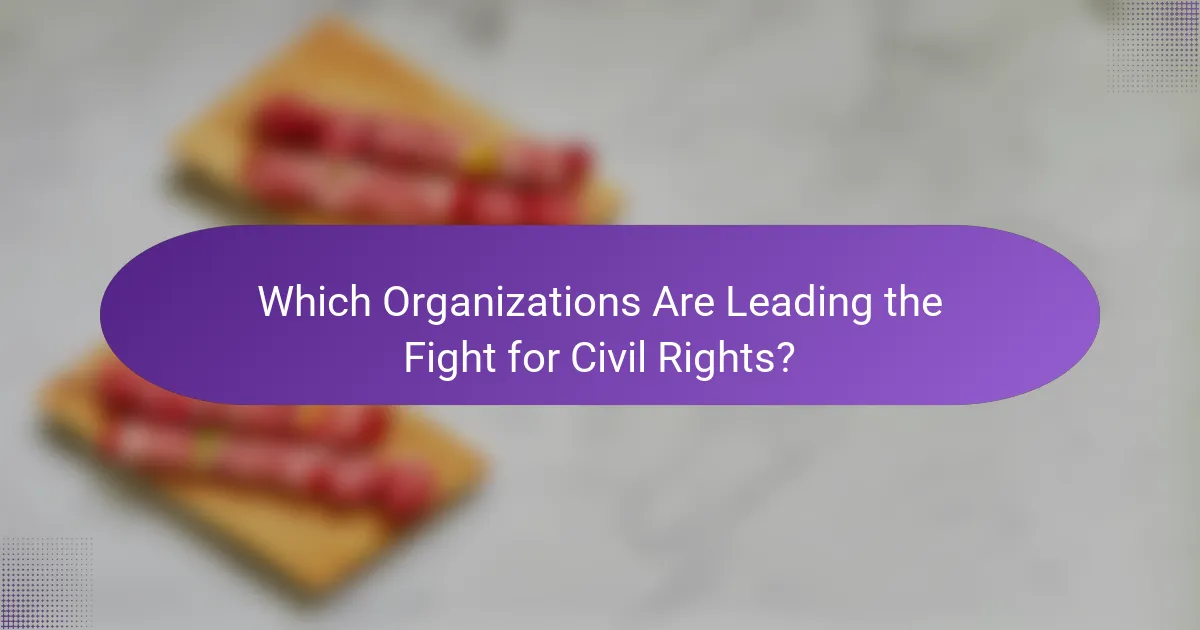
Which Organizations Are Leading the Fight for Civil Rights?
Several organizations are at the forefront of advocating for civil rights globally, focusing on protecting individual freedoms and promoting social justice. These groups work through research, advocacy, and legal action to address violations and hold governments accountable.
Amnesty International
Amnesty International is a prominent global organization dedicated to human rights advocacy. It conducts extensive research on human rights abuses and mobilizes public opinion to influence policy changes.
The organization focuses on various issues, including freedom of expression, the rights of refugees, and the abolition of the death penalty. By engaging in campaigns and lobbying efforts, Amnesty International aims to pressure governments to uphold their obligations under international law.
Human Rights Watch
Human Rights Watch is another key player in the civil rights landscape, known for its rigorous investigations and reporting on human rights violations worldwide. The organization documents abuses and advocates for accountability through its findings.
It emphasizes the importance of international standards and often collaborates with local activists to amplify their voices. Human Rights Watch also engages in direct advocacy with policymakers to promote legislative changes that protect civil liberties.
ACLU
The American Civil Liberties Union (ACLU) focuses specifically on civil rights and liberties in the United States. It provides legal representation and advocacy to protect individual freedoms guaranteed by the Constitution.
The ACLU addresses a wide range of issues, including free speech, privacy rights, and discrimination. By litigating landmark cases and engaging in public education, the ACLU works to safeguard civil rights for all individuals across the country.
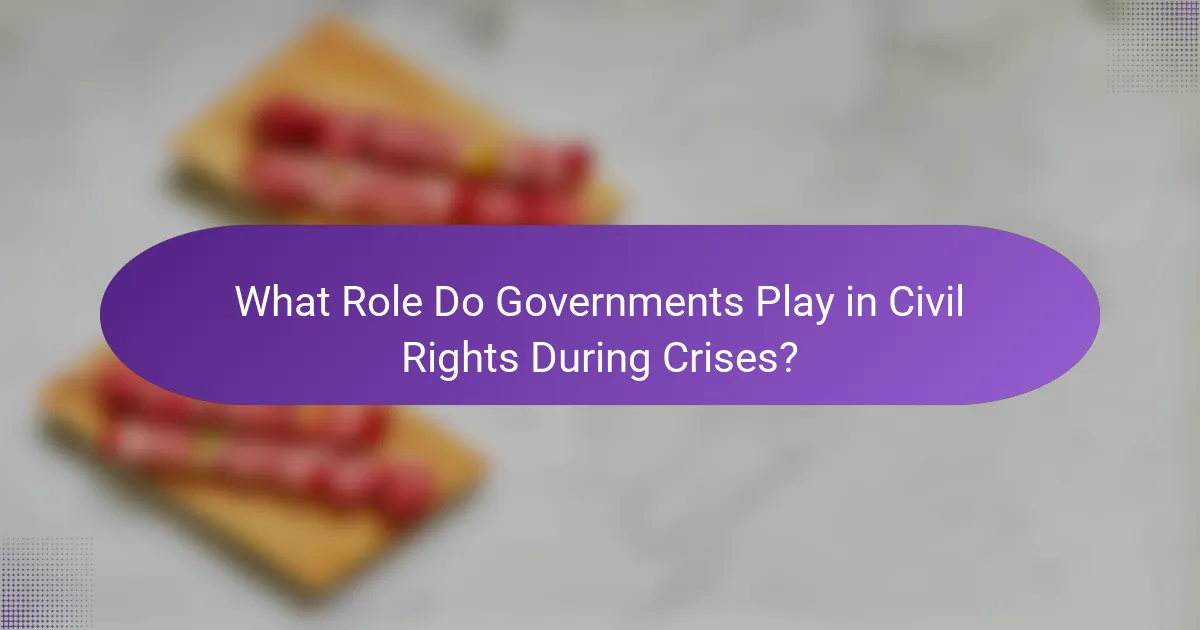
What Role Do Governments Play in Civil Rights During Crises?
Governments play a crucial role in shaping civil rights and freedoms during crises by implementing laws and policies that can either protect or restrict individual liberties. The balance between maintaining public order and safeguarding civil rights often shifts, leading to significant implications for citizens.
Implementation of emergency powers
During crises, governments frequently invoke emergency powers to respond swiftly to threats, such as public health emergencies or national security issues. These powers can include curfews, travel restrictions, and the ability to limit gatherings. While intended to protect citizens, such measures can lead to overreach if not carefully monitored.
For instance, many countries have enacted temporary laws that allow for increased surveillance or detention without trial. Citizens should remain vigilant about the scope and duration of these powers, as they can set precedents that affect civil rights long after the crisis has passed.
Legislation affecting civil liberties
Crises often prompt governments to introduce legislation that can impact civil liberties, such as laws related to freedom of speech, assembly, and privacy. These laws may be justified as necessary for public safety but can also be used to suppress dissent or limit opposition. It is essential for citizens to be aware of any new laws and their implications.
For example, during the COVID-19 pandemic, several countries passed laws that restricted public gatherings and imposed fines for non-compliance. Understanding the specific provisions of such legislation can help individuals navigate their rights during challenging times.
Accountability mechanisms for abuses
Ensuring accountability for abuses of power during crises is vital for protecting civil rights. Mechanisms such as independent oversight bodies, judicial reviews, and public reporting can help monitor government actions and prevent violations. Citizens should advocate for transparency and demand accountability from their governments.
In many democratic nations, civil society organizations play a key role in holding authorities accountable. Engaging with these organizations can provide individuals with resources and support to challenge unjust measures and protect their rights during emergencies.
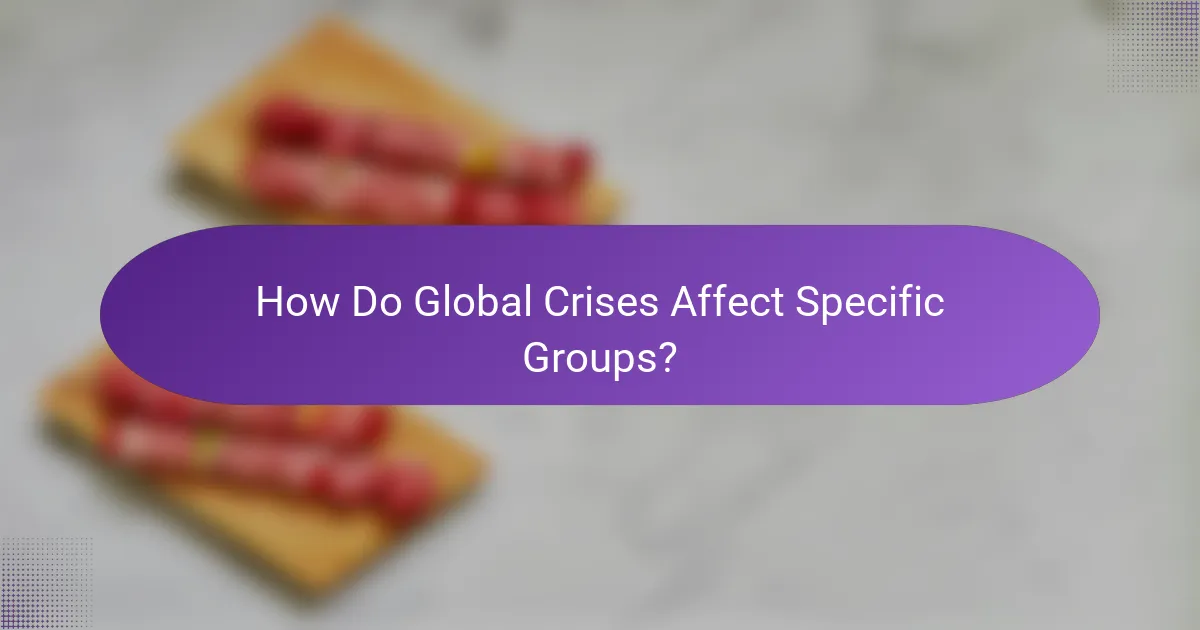
How Do Global Crises Affect Specific Groups?
Global crises significantly impact specific groups, often exacerbating existing inequalities and vulnerabilities. These effects can manifest in various ways, including increased discrimination, reduced access to resources, and heightened risks to safety and well-being.
Impact on refugees and asylum seekers
Refugees and asylum seekers face heightened challenges during global crises, often finding themselves in precarious situations. Conflicts, economic downturns, or health emergencies can lead to stricter border controls and reduced humanitarian assistance, making it harder for them to secure safety and stability.
For instance, during a pandemic, many countries may limit entry to asylum seekers, citing health concerns. This can lead to prolonged waiting periods in unsafe conditions, increasing their vulnerability to exploitation and violence.
Effects on racial and ethnic minorities
Racial and ethnic minorities often bear the brunt of societal tensions during global crises, facing increased discrimination and scapegoating. Economic downturns can lead to job losses and reduced access to essential services, disproportionately affecting these communities.
In many cases, systemic inequalities become more pronounced, resulting in lower access to healthcare and legal protections. For example, during economic recessions, minority groups may experience higher unemployment rates compared to their counterparts, further entrenching cycles of poverty.
Challenges faced by women and children
Women and children are particularly vulnerable during global crises, often experiencing increased violence and reduced access to education and healthcare. Crises can lead to a rise in domestic violence as stressors escalate, and support services may become less accessible.
Children may face disruptions in education, with many schools closing or shifting to remote learning without adequate resources. This can hinder their development and future opportunities, especially in low-income areas where technology access is limited.
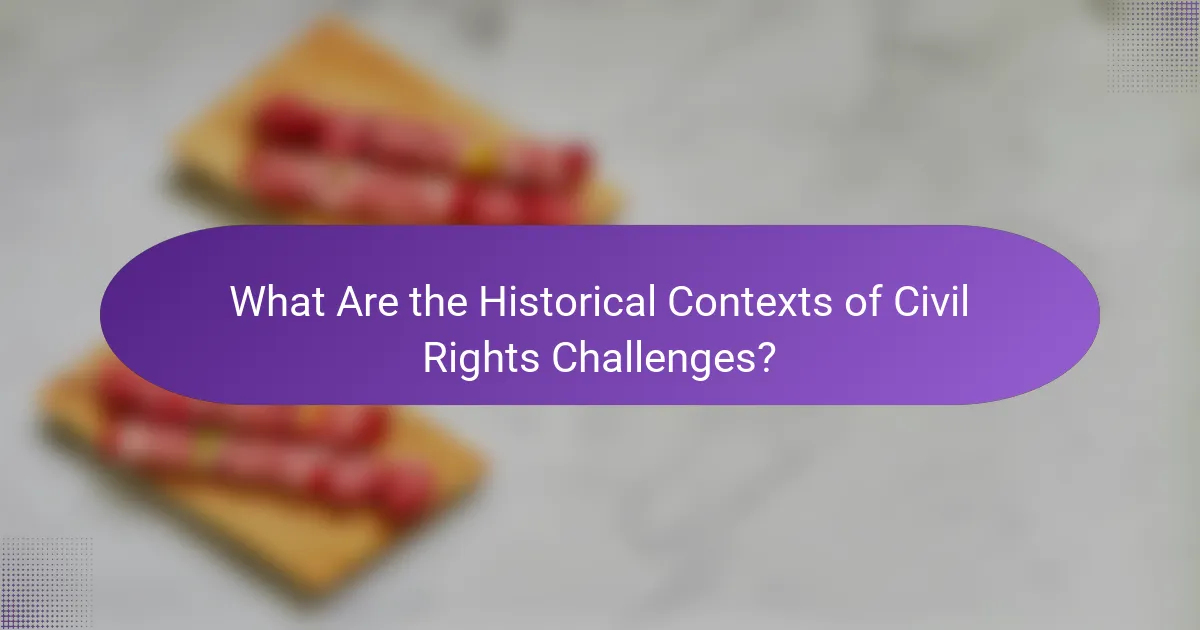
What Are the Historical Contexts of Civil Rights Challenges?
Civil rights challenges have often emerged during periods of global crises, such as wars, economic downturns, and social upheaval. These contexts frequently lead to the erosion of freedoms as governments prioritize security or stability over individual rights.

